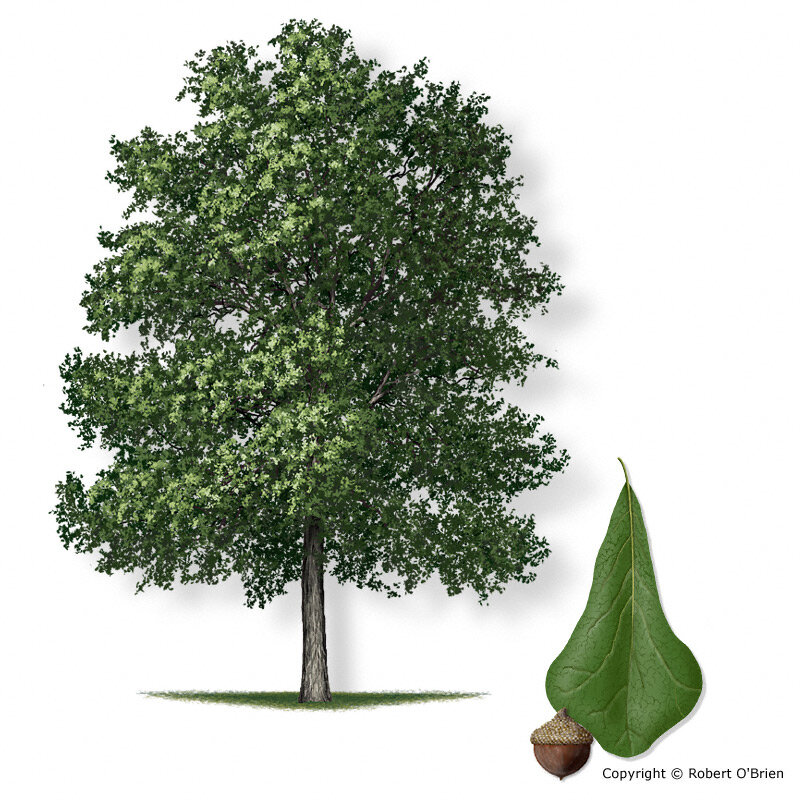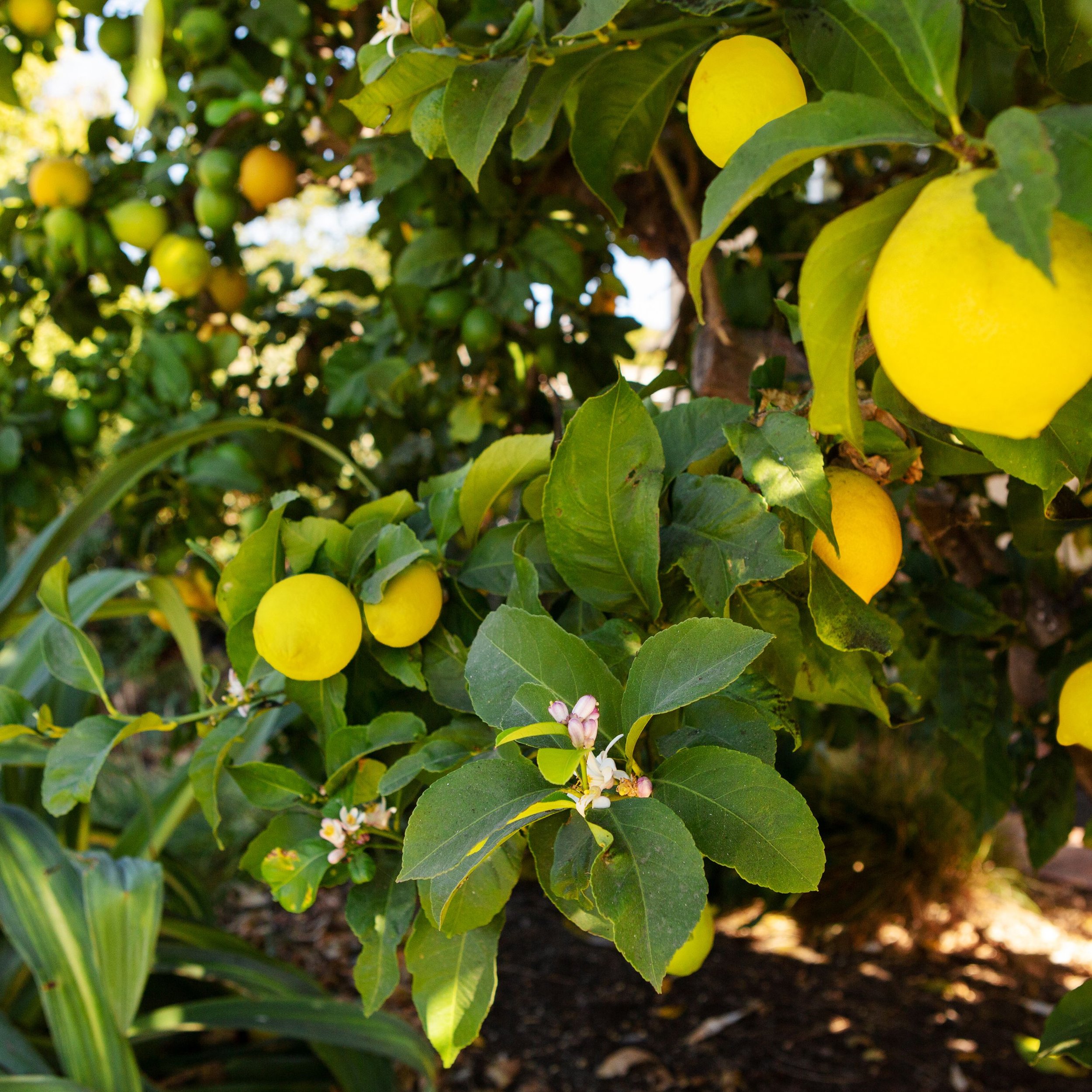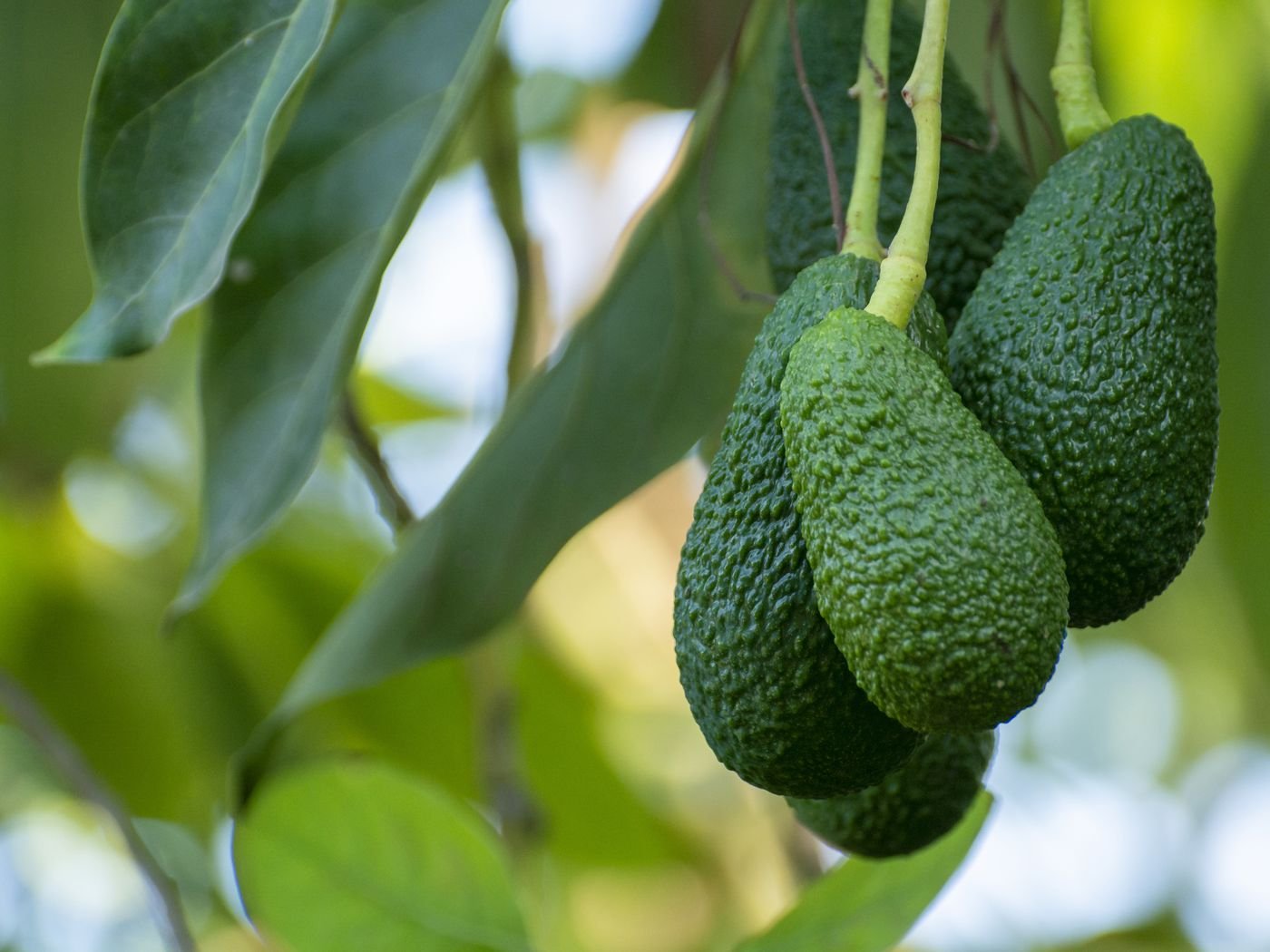Tree Information
(photos and information courtesy of Texas A&M Forest Service’s Tree Information Guide and Arbor Day)
Live Oak
Can grow to 80’ tall and 100’ wide
Very adaptable
Lives to be hundreds of years old
Acorns 3/4'“ in length
Grows very quickly
Bur Oak
80’ tall and 80’ wide
very adaptable, even in urban settings
slow growth
yields large acorns
Pretty foliage in fall
Shumard Oak
40-60’ tall and wide
Very adaptable
Drought Tolerant
Fast Growing
Pretty foliage in fall, 1'“ acorns every 2-4 years
White Oak
Large shade tree 100’ tall & 3’ trunk diameter
Produces 1” acorns
Wood used in a lot of carpentry
Only wood that can be used for water tight barrels
Found in East TX as far west as the Brazos River
Mexican White Oak
Up to 40’ tall with a 2’ trunk diameter
1” acorns
Used mainly as a landscape tree
Only recently discovered as a TX native species
dark to light gray trunk color
Water Oak
Up to 90’ tall with 3’ diameter tree trunk
.5”-.75” acorns needing 2 years to mature
Found in swamp, streams, and bottomlands
Similar to Willow Oak
Wood commonly used for crossties
Red Oak
60-75’ tall and 45’ spread
Great shade tree
Some drought tolerance
Large Acorns
Grows at a fast rate
Chinkapin Oak
40-50’ tall and 50-60’ spread
Very adaptable
slow growth
Produces 1” sweet acorns
Leaves turn yellow-orange in the fall
American Elm
60’ tall and 50-90’ spread
Shallow and wide roots
Lives 300 years
Fast Growing
Golden yellow fall leaves
Cedar Elm
50-70’ tall and 40-60’ spread
Popular street tree in towns due to adaptability
Requires little care
Produces blooms & small green fruit in summer
Yellow foliage in fall
Bald Cypress
50-70’ tall and 25’ wide
Deciduous conifer
adapts to both wet and dry conditions
known for growing in swampy areas
Reddish-orange foliage in fall
Loblolly Pine
60-100’ tall and 25-35’ spread
Fast Growing
Very adaptable
Produces 3-6” long cones
Aromatic Cones and Pine Needles
Eastern Redcedar
40-50’ height and spread
Dense pyramidal shape, good for windbreaks
Evergreen
Produces small, round fruit
Do not plant near apple trees
Chinese Pistache
25’ height and spread
Ornamental tree, great for landscaping
Tolerates urban conditions well
Needs well-drained soil
Turns into a magnificent mature tree
Native Pecan
65-130’ height and 40-75’ spread
Only commercially grown nut in Texas
Grows wild along rivers, streams, & bottomlands
Rich-buttery flavored pecan
Wind-pollinated
Stuart Pecan
70-100’ height and 40-75’ spread
Requires well drained soil
Needs less pruning than other pecans
Does require a pollinator
Takes longer to produce but produces well
Caddo Pecan
60-80’ height and spread
Requires moisture
Needs pollinator
6-8 years to bear
Highly productive pecan tree for years
Wichita Pecan
60-80’ height and spread
Needs plenty of moisture and sun
Drought Tolerant and Hardy
Makes a great pollinator to other pecans
Bears early and is very productive
Choctaw Pecan
40’ tall and 30’ spread
Think hull with rich flavor
Tree requires nurturing
Good for landscaping as well
Pawnee Pecan
20-30’ tall and 15-25 feet wide
large, meaty, tasty pecans
hardy down to 0 degrees
October Harvest-requires pollinator
Papershell Pecan
up to 50’ tall
Cultivated pecan
shell cracks like a peanut shell, very sweet pecan
Commercially grown
Texas Ash
Small Tree at 30-45’ tall
Attractive & densely branched tree
Does well in rocky soils
Low water requirements
Brilliant fall colors
Texas Redbud
Small Tree at 15-20’ height and spread
Adaptable to many soil types
Mainly an ornamental tree
Pink/magenta foliage with red/gold leaves in fall
Drought tolerant
Mexican Sycamore
50’ tall and 30’ spread in landscape setting
Fast growing
Large maple-like leaves
Drought tolerant
Does well in the heat
Drummond Maple
50’ tall and 40’ spread in landscape setting
Red blooms and fruit
Gorgeous fall foliage
Fast growing shade tree
Maple variety adapted to warmer climates & poorly drained soils
Southern Magnolia
60-80’ height and 40’ spread
Can withstand some flooding and moderate drought tolerance
Evergreen
Creamy white and fragrant flowers
Shallow, wide spreading root system
Wax Myrtle
Small and bush-like, also known as bayberry
Evergreen
Requires watering until well established
Clusters of bluish-gray berries in winter
Aromatic foliage used in Civil War times to make candles, soaps, and medicines
Little Gem Magnolia
15-20’ tall and 7-10’ spread
Blooms at a younger age than most magnolias
tolerates some flooding and moderate drought
Evergreen leaves that are dark green on top & rusty underneath
Does best in acidic and moist, but well drained, soils
River Birch
40-70’ height and 40-60’ spread
Can tolerate moderate floods and drought
brown & green catkins in April & May
Cinnamon colored bark that peels once mature
Don’t plant in very alkaline soil
Silk Tree
Also called mimosa or silky acacia tree
20-40’ tall with smaller spread
fern like leaves
fragrant pink pom-pom flowers
extremely adaptable in all soil conditions
Vitex (Chaste Tree)
10-15’ height by 15’ spread
Spikes of lavender flowers blooming heavily in early summer then sporadically in fall
Heat, drought, and pest tolerant
Seeds said to have healing qualities
Crepe Myrtles
All of our varieties can reach 25’ tall without being pruned back to restrict growth
Blooms summer to frost
Clip off spent flowers to promote second bloom
Needs pruning in winter before first bloom
Weeping Willow
30-40’ tall and 35’ wide
Fast growing
Tolerates a wide range of soil types & moisture conditions
Yellow flowers borne on short catkins in Spring
Fruit and Citrus
Ayers Pear
Sweet yellow with red blush, great for eating
Self pollinating but produces more w. pollinator
Ripens mid summer
Fast Growing
Produces fruit in 4-8 years
Pineapple Pear
Combination of pear and pineapple flavor
Russet colored fruit
Great for eating, cooking, and canning
Self pollinating but produces more w. pollinator
Produces fruit in 2-3 years
Moonglow Pear
Dull yellow with pink blush
Great for canning
Requires pollinator
Does best in loamy soil
Produces fruit in 4-6 years
Celeste Fig
very sweet fruit, known as “sugar fig”
Self pollinating
Ripens early summer
can be grown in containers
“closed eye” figs, beetle and fruit rot resistant
Brown Turkey Fig
Fruits both late spring and late summer
Very adaptable
Can become a large tree, up to 20-30’ tall unless pruned
Self pollinating
Use neem oil to prevent insects
Black Mission Fig
Fruits both in late spring and fall
Can get up to 20’ tall
Very resilient tree
Self Pollinating
Needs regular watering in dry months
Anna Apple
Light greenish-yellow skin with red blush
Sweet, slightly tart, and crisp
Produces at an early age and fruit stores well
only needs 200-300 chill hours
Ein Shemer and Dorset are good pollinators
Dorset Apple
Crisp, sweet, and tart flavor
yellow skin with orange-red blush
Similar to Golden Delicious apple
Can produce first year
250 chill hours required
Ein Shemer Apple
Large yellow apples with tart flavor
Good for eating or apple sauce
Produces early
300 chill hours required
Self- Pollinating but does better w. pollinator
Redhaven Peach
Freestone, firm yellow fruit
Self-pollinating but produces more w. pollinator
Freestone with great flavor, good for eating
800-900 chill hours required
All around good peach for canning, eating, etc.
Ranger Peach
Large, red-yellow peach
Freestone
Self-pollinating but does well w. pollinator
Firm Flesh
900 chill hours needed
Red Globe Peach
Large red skinned with sweet yellow fruit
Freestone
800 chill hours needed
Produces in 2-3 years
Self-pollinating
Elberta Peach
Freestone, yellow fruit
Self-pollinating but produces more w. pollinator
Bears Fruit at 3-4 years old with full potential at 8-12 years
800-950 chill hours required
Versatile Peach
Ozark Premier Plum
Large, yellow, juicy fruit
Fruit is good for everything from canning to eating
Self-pollinating but does well w. pollinator
Very Hardy
800 chill hours needed
Bruce Plum
Freestone, rich fruit
compact size, good for urban areas
Good pollinator is Methley Plum
Very hardy, handles heat and frost well
One of the hardiest and tastiest plums
Methley Plum
Up to 20’ tall and 20’ spread
clingstone fruit with purple/red skin
Heavy crop in 2-4 seasons
Self fertile but produces better with pollinator
150-200 chill hours
Mexican Plum
25’ tall with 8-10” trunk diameter
“drupes” ripen late summer and are 1.25”
Fruit commonly used to make jams and jellies
First tree in TX to bloom in Spring
Naturally a solitary tree in East & Central TX
Santa Rosa Plum
Large, clingstone fruit
Self fertile but produces better with pollinator
Fast growing variety
Grows best in loamy, well drained soil
300-500 chill hours required
Meyer Lemon
Hybrid Cross between a lemon and orange
Stays small and is good for container growing
Does not survive below freezing
Self Pollinating
Produces in just 2 years after grafting
Persian Lime
Large, combo of a key lime and lemon
Seedless
Shouldn’t get below 29 degrees
Does well as a patio and indoor plant
Very hardy, and can produce first year
Thornless Key Lime
stays small at 3-5 feet tall
Flavorful and juicy fruit
bears fruit 1-2 years after planting
Ripens in winter
Bring inside before frost
Moro Blood Orange
Unique red fleshed with hint of raspberry
12-15’ tall but can be kept in a container
Requires regular watering
Very fragrant and pretty flowers
Can be considered an ornamental tree as well
Red Navel Orange
Red flesh with anti-aging antioxidants
Mostly seedless
“Bud Sport” of Washington Navel & Brazilian Bahia
Sweet flavor because of low acidity
One of the most cold hardy oranges-to 18 degrees
Few to no seeds, very sweet and juicy
Large attractive tree that buds attract butterflies
Self-Fertile
Washington Navel Orange
Easy Peel
Seedless
Adapted to most areas and soil
Can be kept in a container and grown smaller
Fuyu Persimmon
Self-Fertile
Beautiful Fall Foliage
Fruits the size of medium tomatoes
Seedless
Attracts Wildlife
Dancy Tangerine
Easy Peel, tasty red orange fruit
Great patio plant
Dwarf Evergreen Tree
Thrives in heat and humidity
Flowers beautifully
Sunburst Tangerine
Easy Peel
Sweet and juicy
does well in containers
must be kept above 40 degrees
Produces late fall and early winter
Joey Avocado
Medium sized, 6-10 oz
Tough after roots established
Coldy hardy to 18 degrees
Originally found in Uvalde, TX
Can grow very large, up to 25’X20’
Lila Avocado
Medium, pear shaped avocado
Very cold hardy, down to 10-15 degrees
Very rich, pleasant taste
Can grow up to 20’ tall
Requires regular watering
Hass Avocado
Large avocado
Originated in California
most common avocado in stores
Self Fertile but produces better with pollinator
Requires regular watering, but well draining soil
Rio Red Grapefruit
Large Red, Mostly Seedless Fruit
Fast Growing
Cannot tolerate below 15 degree temps
Known as sweetest grapefruit
Self-Fertile
Owari Satsuma
Easy Peel, seedless, tasty and juicy
Great patio plant
Dwarf Evergreen Tree
Does well with regular water-not good for desert areas
Self Pollinating
Brown’s Select Satsuma
Easy Peel, sweet tangerine like taste
Coldy hardy to 28 degrees, 33 degrees with fruit
does well in whiskey barrel size containers
Needs full sun and well draining soil to produce well
Self Fertile
Early Richmond Cherry
Tart and Juicy
Heavy Producer
Self Pollinating
Requires annual pruning to keep producing well
700 chill hours needed
Black Tartarian Cherry
Dark red, sweet, and juicy
Needs a sweet variety to pollinate with
Fruit can be preserved all winter easily
Requires annual pruning
Needs Full Sun
Montmorency Cherry
America’s Most Popular tart cherry for pies & preserves
Red hybrid with yellow fruit
Self Pollinating
700 chill hours needed
Cold Hardy






































































